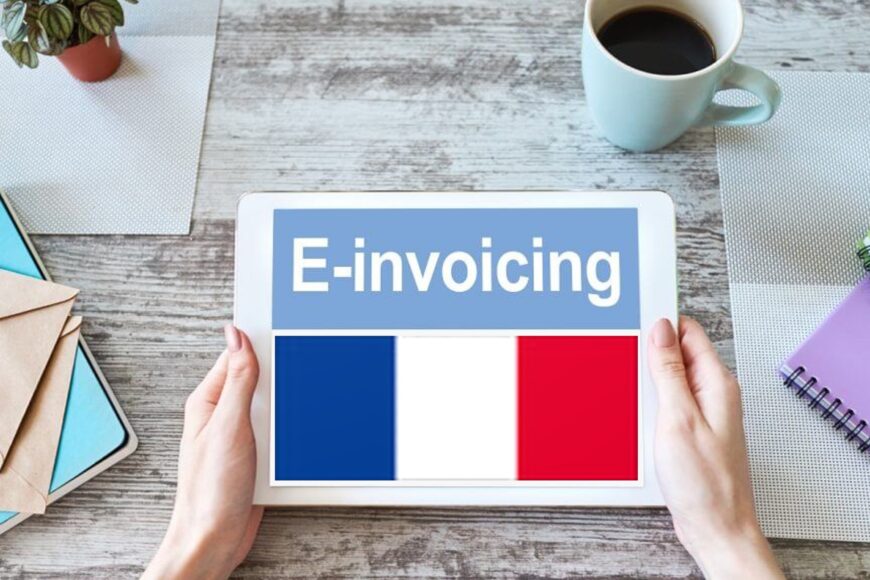E-invoicing France : new timeline and context

Following its press release of 28/07/2023, the French government has recently postponed for two years the progressive generalization of the e-invoicing in France, by submitting on October 17th the amendment Nr. I-5395 to the Budget bill for 2024.
New timeline
The new implementation schedule includes two stages for e-invoices’ issuing :
• 01/09/2026: large companies and mid-sized companies
• 01/09/2027: small and medium-sized companies (non-members of a VAT group), as well as micro-companies
The reception of e-invoices must be ensured by all concerned companies starting from 01/09/2026.
These stages may be postponed for one additional quarter by means of a decree, in the event of administrative or technical necessity.
As a reminder, the initial e-invoicing schedule had three stages: July 1, 2024 for large companies, 2025 for mid-sized companies and 2026 for other companies.
General context
Provided for in article 26 of the amended finance law for 2022, the French e-invoicing concerns purchase and sale of goods and services subject to the French VAT, carried out between VAT registered companies established in France.
Other operations carried out by French companies (in particular provided towards individuals, non-taxable persons or non-established taxable persons) will be the subject of e-reporting which will also follow the new implementation timeline.
For the purposes of transmitting e-data to the French tax administration, which will be automatic for operations covered by e-invoicing, the electronic invoices must include some new mandatory elements:
– the customer’s SIREN number;
– the delivery address of goods if different from that of the customer;
– the distinction between the delivery of goods, the provision of services, or the combination of the two;
– the mention of the “VAT on debits”, when the service provider has opted for VAT being due upon invoicing and not upon payment’s collection.
Transmission of e-invoicing & e-reporting
The issuance and reception of electronic invoices can be carried out:
– via the Chorus Pro public invoicing portal, mandatory since 2020 for transmission of invoices resulting from contracts concluded by the State, local authorities and public bodies;
– via a dematerialization platforms which are partners of the tax administration (PDP), being registered by the General Directorate of Public Finances since the opening of the related service on May 2, 2023.
These same platforms must be used for the transmission to the tax administration of the operations’ data not covered by the e-invoicng.
The Decree No. 2023-377 of May 16, 2023 specifies how to secure electronic invoices, by means of a qualified electronic signature or a qualified electronic seal. Unprotected electronic invoices, as well as invoices received and/or issued by other means within the framework of operations not subject to the e-invoicing obligation (except invoices with a protected by electronic signature and tax-EDI-invoices) will continue to be subject to the reliable audit trail obligation.
Electronic invoices (like any other invoice) must be kept in the original format of their issue/reception during a legal period of 6 years.
Goals and opportunities
The e-invoicing has several goals pursued by the French tax administration:
• reduction of the administrative burden for businesses through the dematerialization of invoicing;
• simplification of VAT return thanks to their progressive pre-filling;
• strengthening the fight against the tax fraud;
• improvement of the knowledge of business’ economics.
The delay of the e-invoicing will allow French companies to get better prepared for this new obligation and the French tax administration to ensure their best support.
It is therefore very important to pursue the steps already initiated by companies or to start them now. Aside from the choice of the electronic platform, it is necessary to identify the flows and the actors concerned by the two distinct obligations, to adjust the invoicing and accounting procedures, to integrate the new mandatory elements in invoicing tools and to ensure the collection of data necessary for the e-reporting.
This is a good time to carry out or update your reliable audit trail documentation, ensuring your company’s compliance with the obligation of continuous controls and their formal aspects.
BtoBnice will be happy to support you with this audit : contact@btobnice.com



